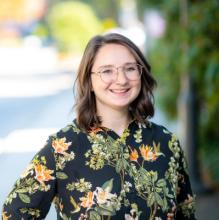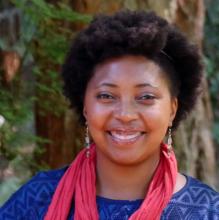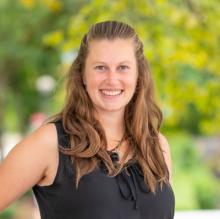Lianne and Jake Stubbs are part of a team involved in a longitudinal study - entitled the Hotel Study - conducted in an impoverished neighbourhood in Vancouver. Taking their work one step further, Lianne and Jake co-designed 'Community Brain Art' a knowledge translation project that involves co-creating art with the community to better communicate the study and its findings to the general public and the stakeholders.
Research Description
Depression is a major contributor to disability among people who experience homelessness. However, we do not fully understand the causes and characteristics of depression in this group of individuals, and this information is vital for the design of effective and sustainable supports at the community, clinical, policy level. Using data from the Hotel Study, which is a community-based longitudinal study based in an impoverished neighbourhood in Vancouver, Canada, I aim to understand the risk factors and characteristics of depression in a homeless population. For my Public Scholars Initiative project, I am working on a knowledge translation initiative called Community Brain Art, which involves co-creating visual art materials with community members and care providers to relay Hotel Study findings to knowledge users and the general public.
What does being a Public Scholar mean to you?
To me, being a Public Scholar means bridging the gap between academic research and community engagement/advocacy. Additionally, being a Public Scholar means being part of a community of people who are all conducting non-traditional scholarly work. By connecting with other PSI Scholars, I hope to learn about the different ways that research can be conducted to benefit the public good, and support each other with our respective projects moving forward!
In what ways do you think the PhD experience can be re-imagined with the Public Scholars Initiative?
I think that the Public Scholars Initiative encourages graduate students to consider how our work can directly impact the general public, and enables us to explore these avenues by providing both peer and financial support. I also think that the PSI encourages prospective students considering graduate school to seek projects that prioritize the needs of communities, which would lead to a re-imagining of the PhD in future generations of researchers.
How do you envision connecting your PhD work with broader career possibilities?
I plan to work as an academic physician in the future. To ensure that my research and clinical work reflect the needs and values of those I hope to serve, I will continually engage in the community and communicate my research findings with the public. In this sense, my PhD work and the Community Brain Art project are preparing me for this multidisciplinary approach to supporting vulnerable populations.
How does your research engage with the larger community and social partners?
The Community Brain Art project engages with community members in several ways. First, Community Liaison Workers are part of the planning team, and will also facilitate discussions and art sessions for groups of community members about their experiences regarding brain health and wellbeing in general. These conversations and art pieces will then contribute to an art exhibition and creation of a public mural that aims to raise awareness about brain health to a larger audience. The infographics will also be co-created with knowledge users to ensure accessibility, relevance, and impact.
Why did you decide to pursue a graduate degree?
At the end of my Bachelor’s degree, there was still so much I wanted to learn! In particular, I am very interested in studying how life experiences, societal contexts, and medical factors affect wellbeing. Furthermore, I view graduate school as an opportunity to learn how to advocate for social justice issues through research. Last but not least, my mentors and past experiences during my undergraduate studies played a large role in empowering me to pursue my goals, and so I want to pay it forward as a graduate student and future clinician-scientist.
Why did you choose to come to British Columbia and study at UBC?
I decided to study at UBC to work with Dr. William Honer and the Hotel Study team. Additionally, having lived on the east coast my whole life, I wanted to experience living in British Columbia and be close to my grandparents!




